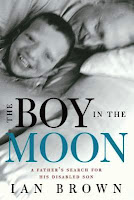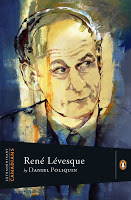 When I hear talk of book awards – usually my mind jumps automatically to fiction – as that seems to be the area of writing that most awards (and the most well publicized awards) focus. The Man Booker, The Giller are big brands in fiction and often jump to the front of the mind when talking about prize winners. The Governor General’s awards, the National Book Awards and others offer fiction as well as nonfiction prizes – but somehow to me it seems the novel winners always get more attention than the nonfiction winners.
When I hear talk of book awards – usually my mind jumps automatically to fiction – as that seems to be the area of writing that most awards (and the most well publicized awards) focus. The Man Booker, The Giller are big brands in fiction and often jump to the front of the mind when talking about prize winners. The Governor General’s awards, the National Book Awards and others offer fiction as well as nonfiction prizes – but somehow to me it seems the novel winners always get more attention than the nonfiction winners.
Cue the Charles Taylor Prize – a Canadian award that has been building its reputation (and recognition) over the last ten years, an award which “commemorates Charles Taylor’s pursuit of excellence in the field of literary non-fiction. The prize will be awarded to the author whose book best combines a superb command of the English language, an elegance of style, and a subtlety of thought and perception.” Charles Taylor was a Canadian journalist and writer who “displayed a remarkable talent for expressing his thoughts eloquently. His writing style, though deceptively simple had an elegance of rhythm and music.”

The Boy in the Moon: a father’s search for his disabled son, by Ian Brown. Brown is a reporter for the Globe and Mail Newspaper. His son Walker was born with a genetic defect that leaves him in diapers, unable to speak or to take care of himself. I remember reading Brown’s series in the Globe a few years back about life with his son. That series was the catalyst for this book.

 It’s interesting to see these next two books – biographies of ideological opposites – up against each other in a book prize. Just Watch Me: the life of Pierre Elliott Trudeau, 1968 – 2000, by John English is English’s second volume in his celebrated biography of Canada’s enigmatic PM who promoted bilingualism and recognition of French and English culture in Canada. While René Lévesque, by Daniel Poliquin ( a new contribution to Penguin’s Extraordinary Canadians series) looks at the life of an important French Canadian politician who favoured nationalism over unity, founding the Parti Québecois and organizing two referenda on Quebec separation.
It’s interesting to see these next two books – biographies of ideological opposites – up against each other in a book prize. Just Watch Me: the life of Pierre Elliott Trudeau, 1968 – 2000, by John English is English’s second volume in his celebrated biography of Canada’s enigmatic PM who promoted bilingualism and recognition of French and English culture in Canada. While René Lévesque, by Daniel Poliquin ( a new contribution to Penguin’s Extraordinary Canadians series) looks at the life of an important French Canadian politician who favoured nationalism over unity, founding the Parti Québecois and organizing two referenda on Quebec separation.



